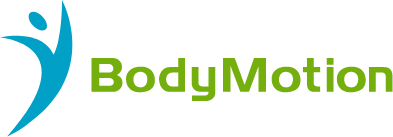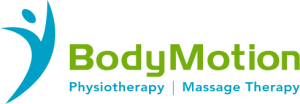Physiotherapy is a cornerstone of modern, comprehensive healthcare, playing a pivotal role in guiding individuals through the maze of injury prevention and rehabilitation.
In this piece, our specialists at BodyMotion Physiotherapy delve beyond the initial questions like ‘What is physical therapy?’ and ‘What does the physiotherapist do for you?’. We will address how physio for sports injury and everyday struggles can aid in managing pain, enhancing mobility, expediting recovery, and designing bespoke treatment plans, all while being a non-invasive and drug-free approach. We’ll also shed light on the vital functions physiotherapists serve in your journey toward recovery.
Get ready to explore the transformative impact of physiotherapy in restoring and maintaining optimal physical health.
What is Physical Therapy?
Physical therapy is a healthcare specialty focusing on physically rehabilitating individuals suffering from injuries or illnesses impairing their movement and functionality. For patients across all age groups and medical conditions, physical therapy has become integral in holistic treatment plans and healthcare, encompassing:
Managing Pain
A common query people have is about managing pain, like the discomfort associated with a pinched nerve in the back. Physiotherapy offers an array of techniques to alleviate such pain. Manual therapy, soft tissue mobilisation, and therapeutic exercises work cohesively to treat the pain and address the underlying cause, proving particularly beneficial compared to relying solely on medications.
Improving Function and Mobility
Whether it’s through products like arch support thongs for foot-related discomfort or targeted exercises for a physio sports injury, physiotherapy uses a combination of stretching, strengthening, and range of motion exercises to rehabilitate injured areas, thereby improving overall function and mobility.
Accelerate Recovery Periods
By promoting healing, reducing inflammation, and preventing further injuries, physiotherapy ensures a quicker return to normal activities. This is especially true for conditions like acute neck pain or a physio for sports injury, and, again, helps those solely deciding between medication on offer, such as Fisiocrem vs Voltaren.
Bespoke Treatment Plans
Every individual is unique. So are their injuries and risk levels. Physiotherapists excel in creating tailored treatment and rehabilitation plans, considering each patient’s specific requirements. This personalised approach maximises the effectiveness of the treatment, ensuring better outcomes.
Non-Invasive and Drug-Free
Physiotherapy stands out as a non-invasive, drug-free alternative, making it a safe option for most people, particularly appealing to those seeking natural ways to heal and improve their physical wellness.
What Does Your Physiotherapist Do For You?
Your journey with physiotherapy starts with understanding what your therapist does for you, beyond merely the difference between techniques and procedures like acupuncture and dry needling. The process typically involves:
- Initial Assessment: Your physiotherapist will evaluate your injury, helping to develop an effective treatment plan that meets your goals and needs.
- Treatment Sessions: Treatment sessions vary in frequency and techniques according to your specific injury and treatment plan. These may include manual therapy, exercise therapy, and electrotherapy, each catering to your recovery path effectively.
- Home Exercises: In addition to in-clinic treatments, your physiotherapist may prescribe home exercises, ensuring continuity and effectiveness of the treatment outside the clinic.
- Progress Evaluation: Regular progress evaluations will monitor your improvement. Based on these assessments, your physio may adjust the treatment plan to ensure you are on the most effective path to recovery.
Physiotherapy for Injury Prevention
Injury prevention is a cornerstone in physiotherapy, focusing on proactive measures to avert common physical injuries. For instance, a pinched nerve in the back or acute neck pain can often be prevented through performing regular, specific exercises and posture corrections taught by a physiotherapist. These exercises are designed to strengthen the muscles, improve flexibility, and enhance core stability, thus reducing the risk of injury. Additionally, physiotherapists can provide valuable advice on ergonomic practices and lifestyle changes to prevent these ailments further.
Physiotherapy for Rehabilitation
Rehabilitation is another key area where physiotherapy has a profound impact. Common techniques and approaches in rehabilitation that a physio will tailor to your needs include:
- Rehabilitation Exercises: Tailored exercises play a critical role in rehabilitation, helping to restore strength, flexibility, and range of motion. These exercises often target specific areas of injury, aiding in a quicker and more effective recovery.
- Therapies: Physiotherapists employ different therapies like manual therapy, soft tissue mobilization, and electrotherapy. Each of these therapies has its unique benefits and is used based on the patient’s specific requirements.
- Acupuncture and Dry Needling: Understanding the difference between acupuncture and dry needling is important in physiotherapy. While both use needles, acupuncture is based on traditional Chinese medicine and focuses on balancing energy flow. In contrast, dry needling focuses more on relieving muscle pain and tightness by targeting trigger points.
Supporting Tools and Products in Physiotherapy
A range of tools and products support physiotherapy to enhance its benefits. For example, products like arch support thongs can provide necessary support and relief for foot-related issues, improving posture and reducing strain on other parts of the body.
Pain relief products also play a significant role. The comparison of Fisiocrem vs Voltaren illustrates his point. While both are effective in pain relief, they work differently. Fisiocrem is a natural massage cream, often used for muscle and joint pain, whereas Voltaren is a medicated gel that targets inflammation. Physiotherapists can guide patients on the most appropriate product for their specific condition, ensuring an integrated approach to treatment and recovery.
Work with Our Specialists at BodyMotion Physiotherapy
As a leading physio in Melbourne’s eastern suburbs, our team have a range of personalised solutions to help with your rehabilitation and prevent further injury. From our KAHRMA Program focusing on addressing rehabilitation and mobility for the knee and hip, to our dedicated falls prevention services, explore our range of services or contact us today to find the right solution for you.



